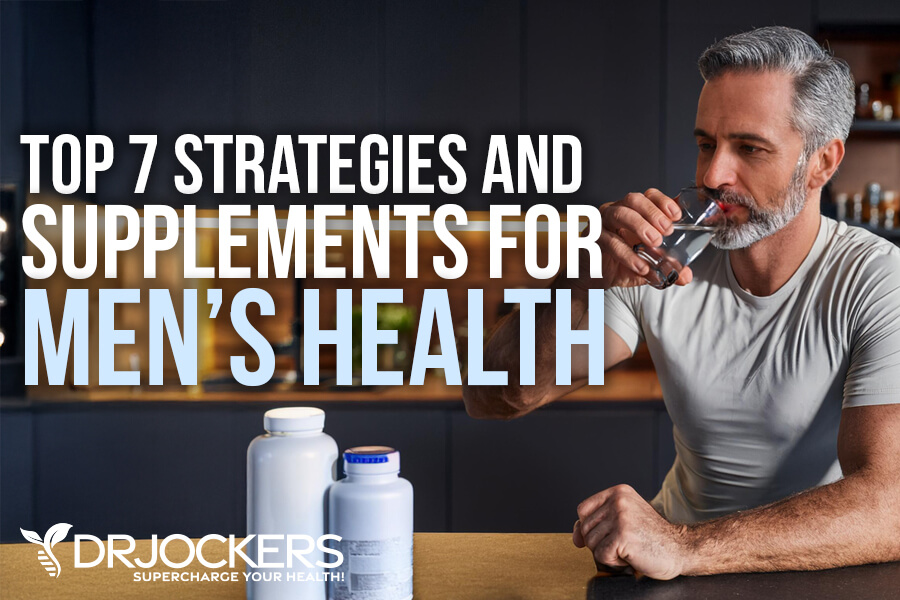 Top 7 Strategies and Supplements for Men’s Health and Performance
Top 7 Strategies and Supplements for Men’s Health and Performance
We all want to improve our health and well-being. While many health goals are similar or the same for men and women, there are also some differences. This is not surprising since men and women have different bodies and socialization, their roles in the family, and their personalities may also affect these goals.
This also means that supplementation and health strategies need to be personalized, too. My website has a lot of articles on women’s health as well. This article is about men’s health and the top strategies and supplements to improve men’s health and performance.
In this article, you will learn about the most common health goals for men. You will understand the problem with low testosterone. I will share the top health strategies for men. I will also share the top & supplements for men’s health and performance.
Most Common Health Goals for Men
The most common health goals for men include improving physical fitness, achieving overall wellness, and addressing specific health risks and issues. When it comes to improving physical fitness, one of the most common health goals for men is to achieve or maintain a healthy weight and body composition.
Men generally desire to reduce their body fat percentage, build muscle, and have a lean but strong body. They want to get stronger and have more endurance. Of course, these health goals not only involve working out, but also eating a better, more nutritious diet that supports their fitness and health goals.
Achieving and sustaining a healthy weight, building muscle, reducing body fat, and having a healthy body composition can do a lot for men’s health. It may help to increase physical and mental energy and reduce the risk of chronic health conditions, including hypertension, heart disease, and diabetes. It can also improve their self-image and self-confidence.
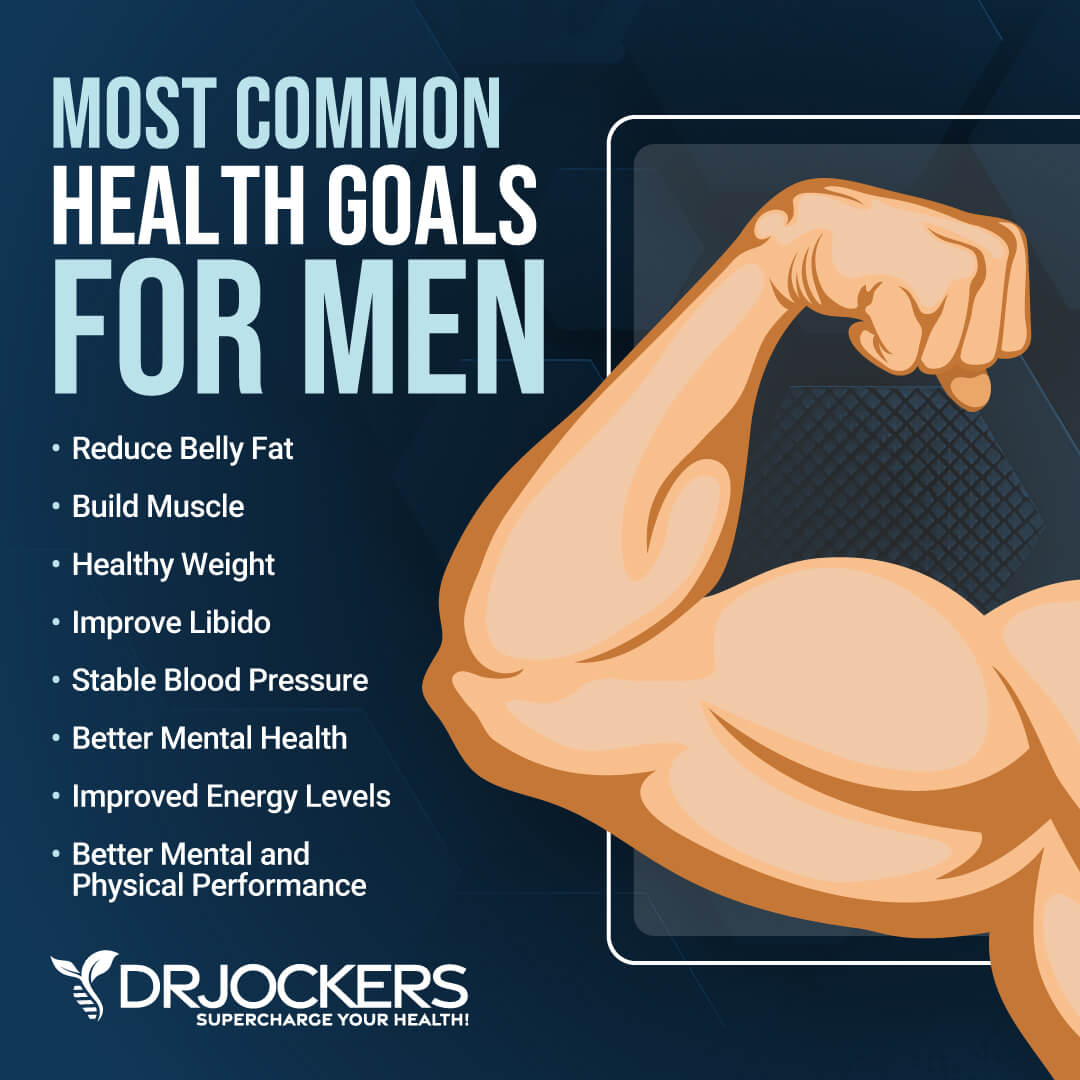
This brings us to another common health goal for men. And this is improving mental health and managing stress. Most men live a very busy life. They have to balance work, their personal life, and hobbies.
They want to be an active part of their family’s life while also providing and having time for self-improvement. This can be stressful. Thus, stress-reducing strategies, including meditation and mindfulness, cultivating strong social connections, and focusing on self-improvement, are commonly on the New Year’s resolution list of men.
Then, of course, we can’t forget about improving and keeping a healthy libido and testosterone levels. This is not only important for their sexual health, connection with their partner, and fertility, but also for their confidence, overall well-being, and vitality.
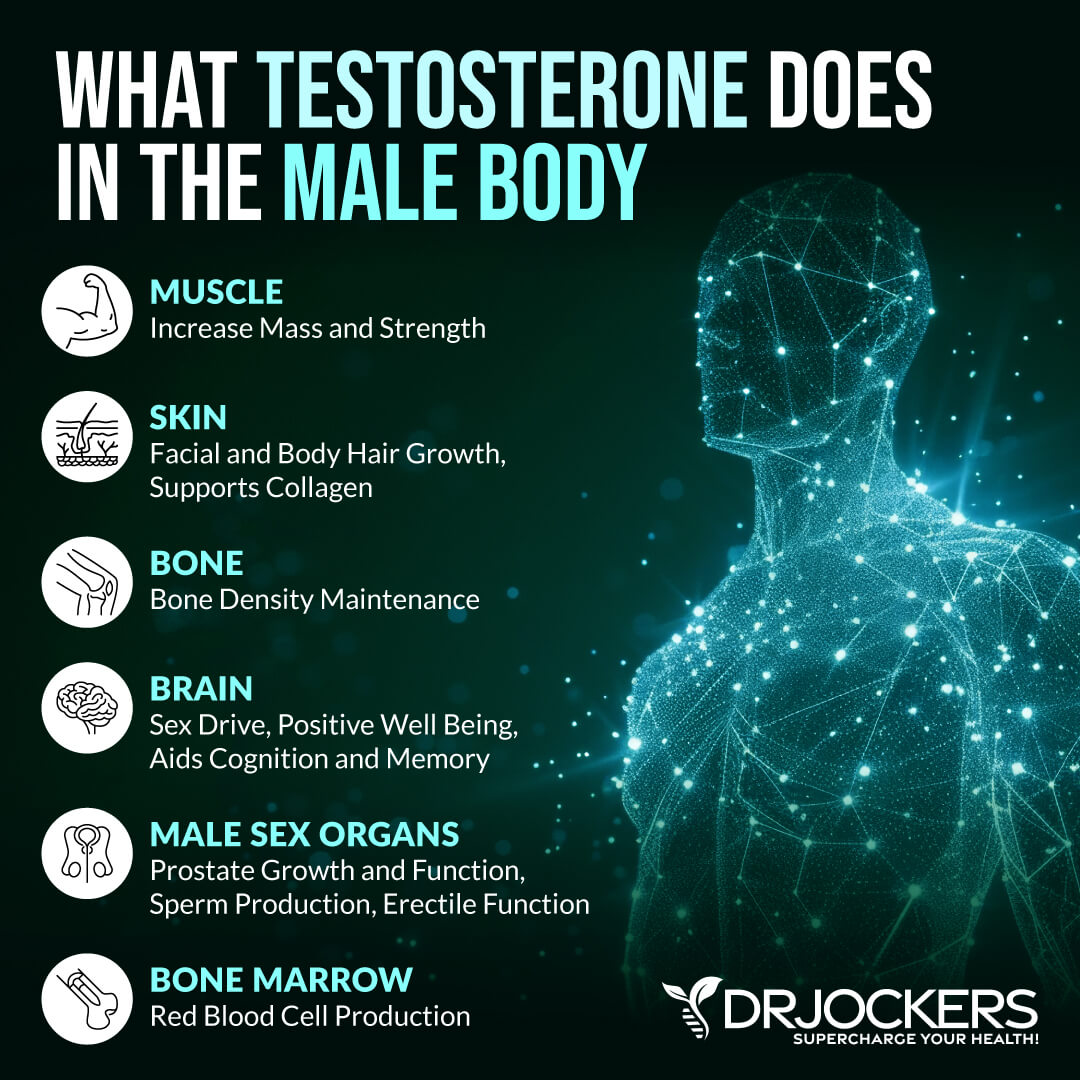
The Importance of Testosterone:
Testosterone is the major male sex hormone, which in men is produced in the testes, and, albeit in smaller amounts, in women, in the ovaries and adrenal gland. Testosterone is important for the development of the penis and testes, the appearance of facial and pubic hair, the deepening of the voice during the teenage years, hair loss, muscle size, muscle strength bone growth, bone strength, sperm production, and libido, in men and bone strength, ovarian function, and libido in women.
Clearly, testosterone is important for men’s health. However, once they pass age 30, testosterone production starts to decrease by 1.5 percent each year in men (1). This decline is called andropause.
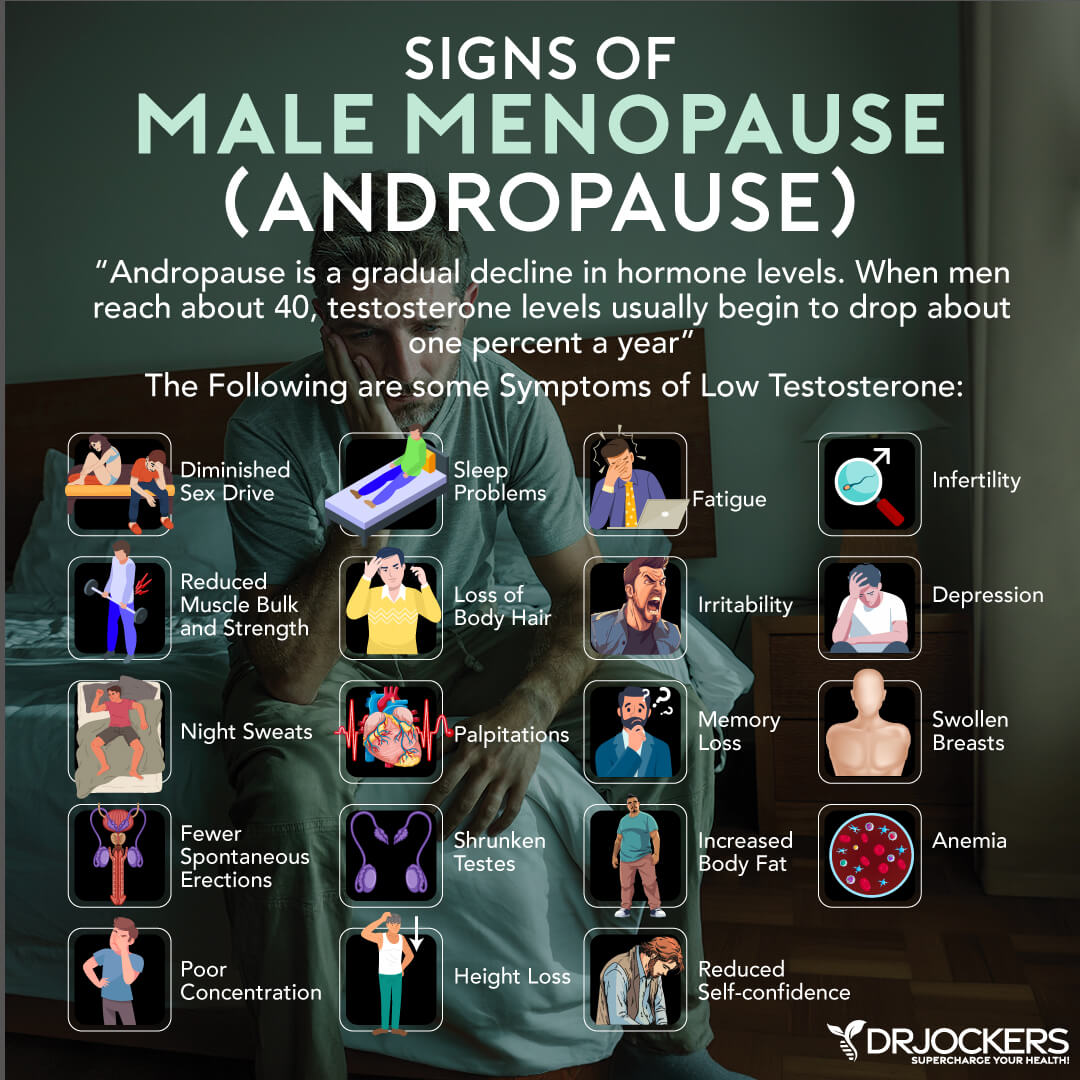
The Problem with Low Testosterone
According to the Alliance for Aging Research, about one-third of men over the age of 39 in the US reported two or more symptoms of low testosterone levels (2). These symptoms of andropause may include a decline in libido, reduced muscle mass, an increase in belly fat, a lack of drive, and depression.
These changes happen gradually. You may not notice symptoms for years or may feel that your symptoms are normal, as they come so gradually. However, not paying attention to early signs and risks is a mistake.
Low testosterone levels can not only come with unwanted symptoms but also some health consequences. According to a 2006 study on 858 men over 40 published in Archives Of Internal Medicine, those men with low testosterone levels had an 88 percent increased risk of those who had normal levels (3).
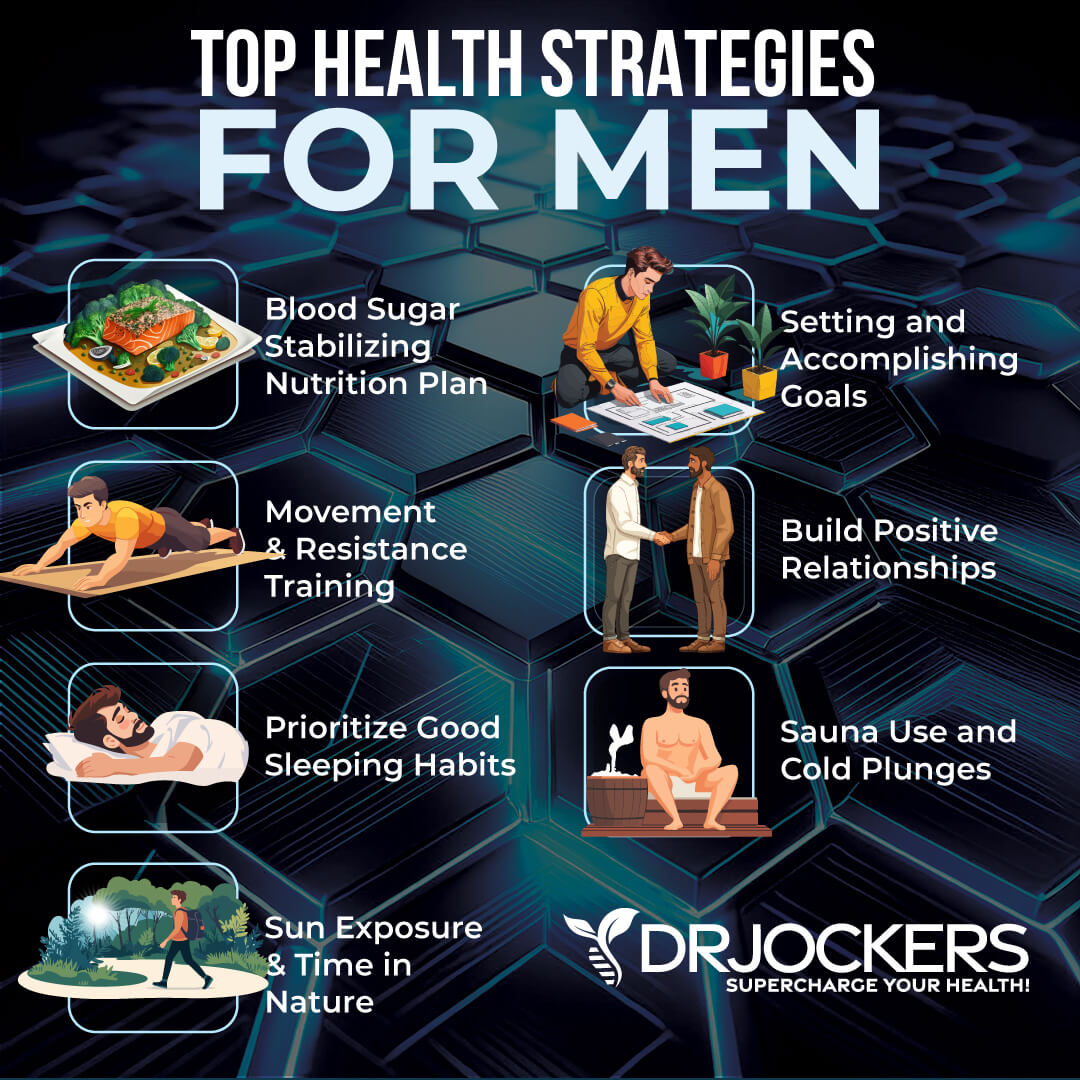
Top Health Strategies for Men
So, what can you do as a man to protect your health? Here are the top health strategies for men:
Blood Sugar Stabilizing Diet
Blood sugar imbalances and insulin resistance are common health issues among both men and women. It can increase your risk of prediabetes, type 2 diabetes, and other health issues. Following a blood sugar stabilizing diet can greatly help to improve your blood sugar balance and reduce your health risk factors.
Following an anti-inflammatory, low-carbohydrate, or ketogenic diet is a great tool for stabilizing blood sugar levels, reducing insulin resistance, and decreasing chronic inflammation. According to a 2013 study published in Nutrition Research (New York, N.Y.), following a low-carbohydrate diet may help to improve insulin resistance and other health markers (4). I recommend that you remove inflammatory foods, such as refined sugar, refined oils, artificial ingredients, sodas, sugary juices, and overly processed foods.
Follow a nutrient-dense, antioxidant-rich, and anti-inflammatory diet instead with lots of greens, vegetables, sprouts, fermented foods, low-glycemic index fruits, grass-fed meat, pasture-raised poultry and eggs, wild-caught fish and seafood, and wild game.
Keep your carbohydrate levels low, coming from vegetables, such as carrots, beets, and sweet potatoes, and low-glycemic index fruits, such as berries, only. Focus on lots of healthy fats, including avocados, grass-fed butter and ghee, coconut oil, MCT, coconut butter, olives, and extra virgin olive oil.
Eat at least 30-50 grams of protein in each meal, and if you are very active and trying to build muscle, you can eat 50-100 grams of protein per meal. The best sources of protein are from grass-fed animal products and wild-caught seafood sources.

Make sure to get lots of antioxidants from herbs, non-starchy vegetables, and low-glycemic index fruits. You may add some nuts or seeds to add more fiber to your diet and improve your omega-3 levels to lower inflammation.
I must note that for omega-3, fish sources and fish supplements are your best options, as the type of omega-3 (ALA) in nuts and seeds doesn’t convert well, whereas sources from fish sources you can get DHA and EPA right away.
Add some fermented food, such as sauerkraut, kimchi, fermented vegetables, coconut kefir, and kombucha, to improve your gut health, as gut microbiome imbalance can throw off your blood sugar. If you need a sweetener, monk fruit and stevia are great natural options. To learn more about reducing insulin resistance, I recommend reading this article.
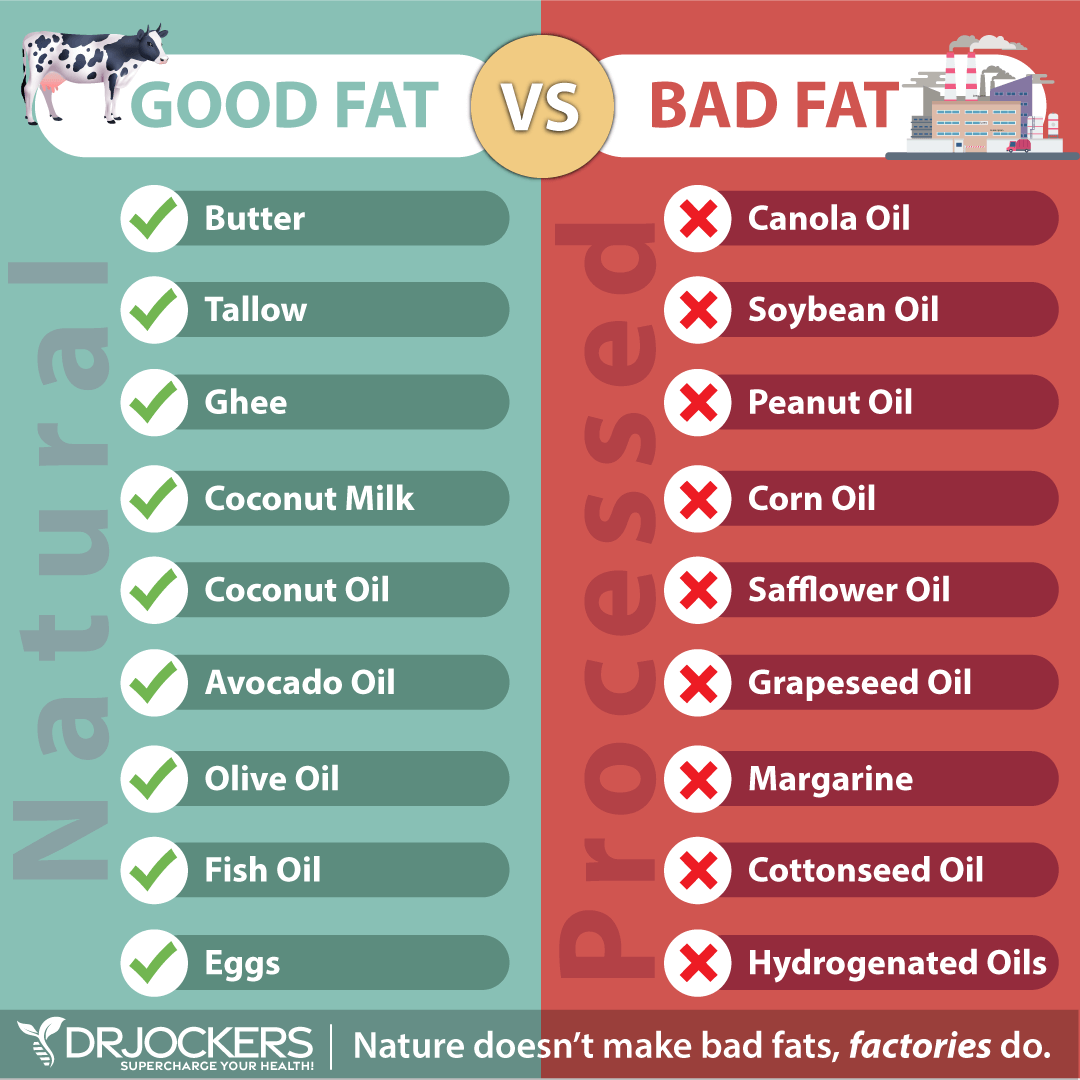
Movement & Resistance Training
Regular movement and exercise are critical for many health goals for men, including building muscle, weight loss, reducing stress, better mental health, more energy, and overall well-being. Regular exercise may also help to improve your blood sugar balance.
This includes even short-term exercise, which can also help your muscle cells take up more glucose to be used for energy and tissue repair, and as a result reduce your blood sugar. A long-term regular exercise practice can improve insulin sensitivity, glucose transport, metabolic health, weight, and strength.
I recommend that you move your body throughout the day by incorporating stretching, walking in the park, playing outdoors with your kids, yoga, and any other movement. Additionally, I recommend 30 to 60 minutes of exercise on most days, at least five times a week, for lower inflammation, improved insulin sensitivity, better immune health, and lower stress levels.
According to a 2012 study published in Current Sports Medicine Reports, resistance training can improve cardiovascular health, metabolic health, cognitive abilities, bone mineral density, pain reduction, movement control, physical performance, and self-esteem (5).
I recommend that you focus on resistance and strength training workouts, including bodyweight exercises, free weights, kettlebell workouts, TRX workouts, and resistance bands. I also recommend high-intensity interval training (HIIT), which is a great way to combine cardiovascular workouts and strength and resistance training.
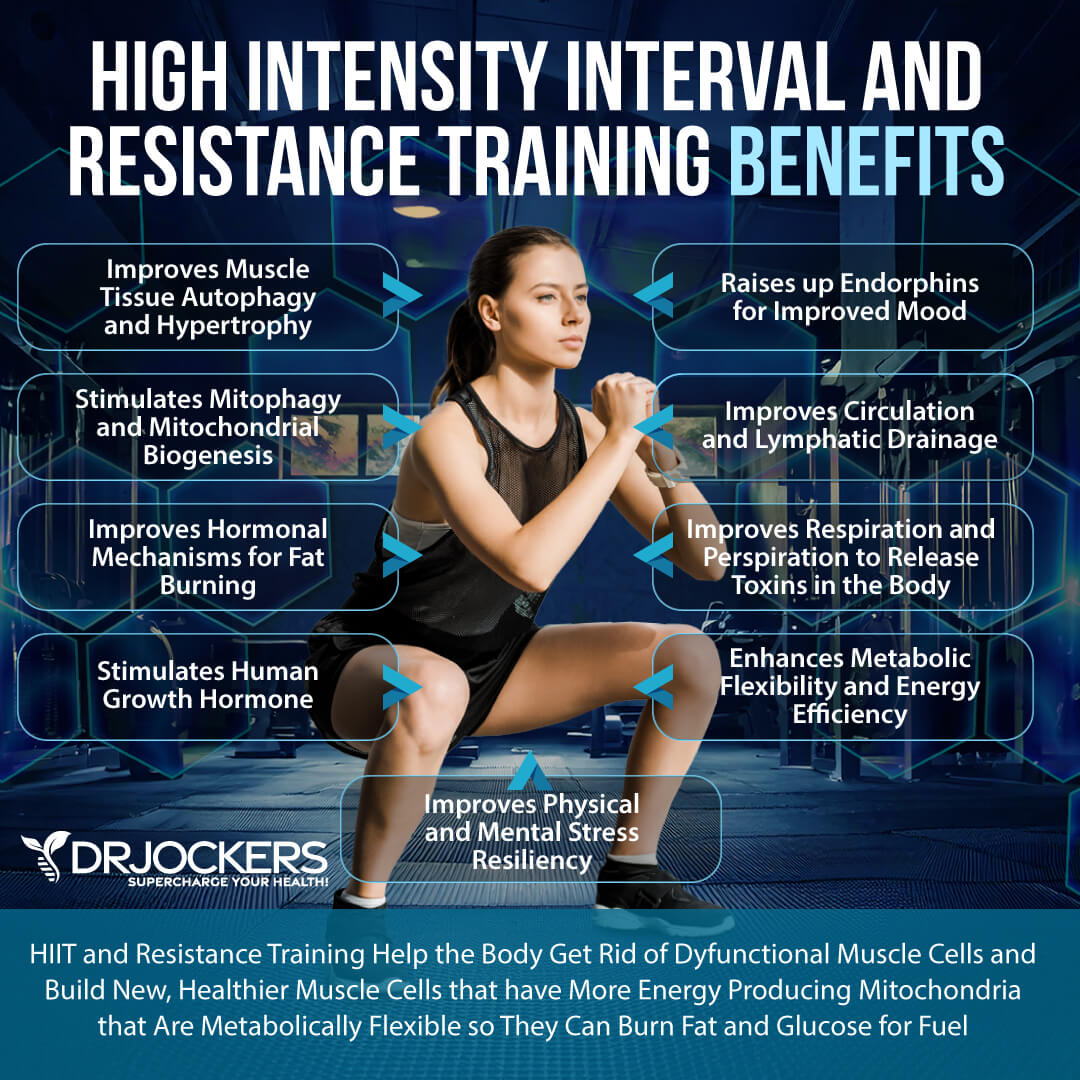
Prioritize Good Sleep Habits
Prioritizing sleep is critical for good energy levels, low inflammation levels, better mood, and overall health. According to 2002 research published in Translational Andrology and Urology, sleep is important for improving low testosterone, erectile dysfunction, lower urinary tract symptoms, hypogonadal symptoms, and male infertility in men (6).
I recommend that you sleep 7 to 9 hours a night. Try to have a regular bedtime and wake-up time to support your body’s natural circadian rhythms. Ideally, you want to sleep at night, so avoid 3rd shift work if you can.
Avoid sugar, heavy foods, caffeine, and alcohol in the evening. Avoid electronic use a few hours before bedtime. If you must use any electronic in the evening, use a blue light screen or blue light glasses. Reduce your stress in the evening.
Choose activities that help you wind down, such as reading, journaling, listening to calming music, meditation, or taking a healing bath. Support your sleep with the help of blackout curtains, a sleep mask, a supportive mattress and pillows, and comfortable bedding.

Sun Exposure and Time in Nature
Regular sun exposure and time in nature have many health benefits for men. For example, sun exposure helps to improve your vitamin D levels. Vitamin D is a fat-soluble vitamin that’s critical for many areas of your health, including immune health, bone and muscle health, and brain and mental health.
According to 2011 research published in Hormone and Metabolic Research, vitamin D is also important for testosterone levels in men (7). Vitamin D is obtained from the ultraviolet (UV) rays of the sun. So, spending time in the sunshine is critical for your vitamin D levels.
Additionally, spending time in nature is a great way to reduce your stress levels, get some fresh air into your lungs, move your body, and spend time with friends and family. Visiting a local county, state, or national park is a great option for a hike.
It is a great thing to incorporate weekly or even monthly into your regimen. But you don’t have to go far. Even a nearby city park or spending time in your backyard can be a good option to meet nature and get some sunshine on a daily.
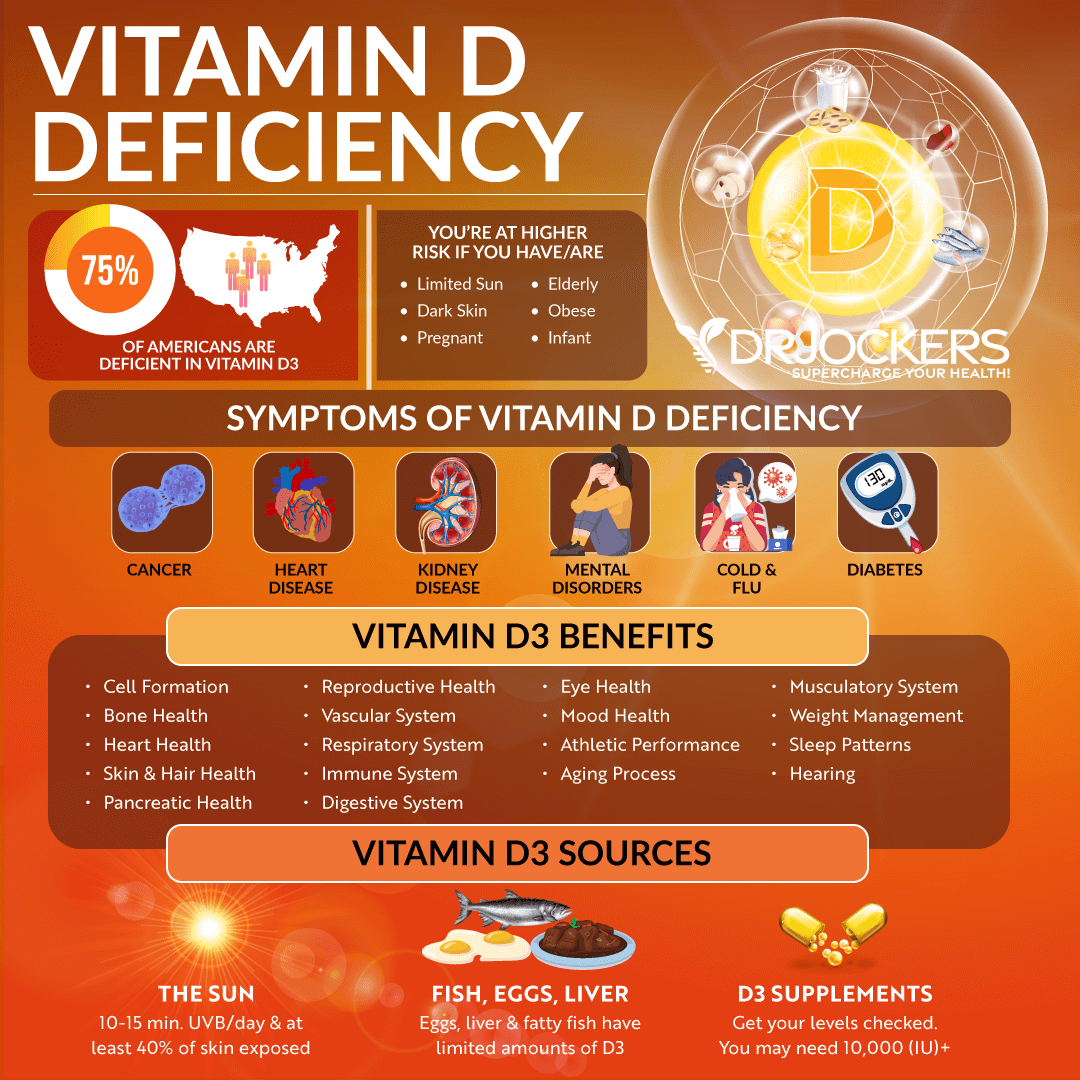
Setting and Accomplishing Goals
It’s also important that you challenge yourself, both physically and mentally. Set goals and go after and achieve them.
Of course, setting and accomplishing goals can be great for your confidence, self-esteem, and spirit. It may increase motivation and reduce boredom and stagnation. Depending on your goals, it may even connect you with new people, a community, or a new topic of interest.
However, this goes beyond the mental part. According to 2009 research published in the Journal of Research in Personality, power motivation affects your hormones, including your testosterone levels (8). Yes, setting and achieving goals can help to improve your testosterone levels.
So, what kind of goals should you set? It may be a new exercise goal, such as being able to lift a certain weight, learning a new type of exercise, or competing in something. It can be a health goal, such as losing a certain amount a day, adding one extra cup of vegetables, sleeping enough hours, or getting 10,000+ steps in daily.
It may be related to your work life, such as getting a promotion, changing your job, or starting a business. It may be educational, you may want to learn a new language, get a new degree, get some certification, or learn a new skill in a self-taught way. It can be reading one book a month or a week, doing a new craft project, or it can even be a family goal, like going for a family hike every week.
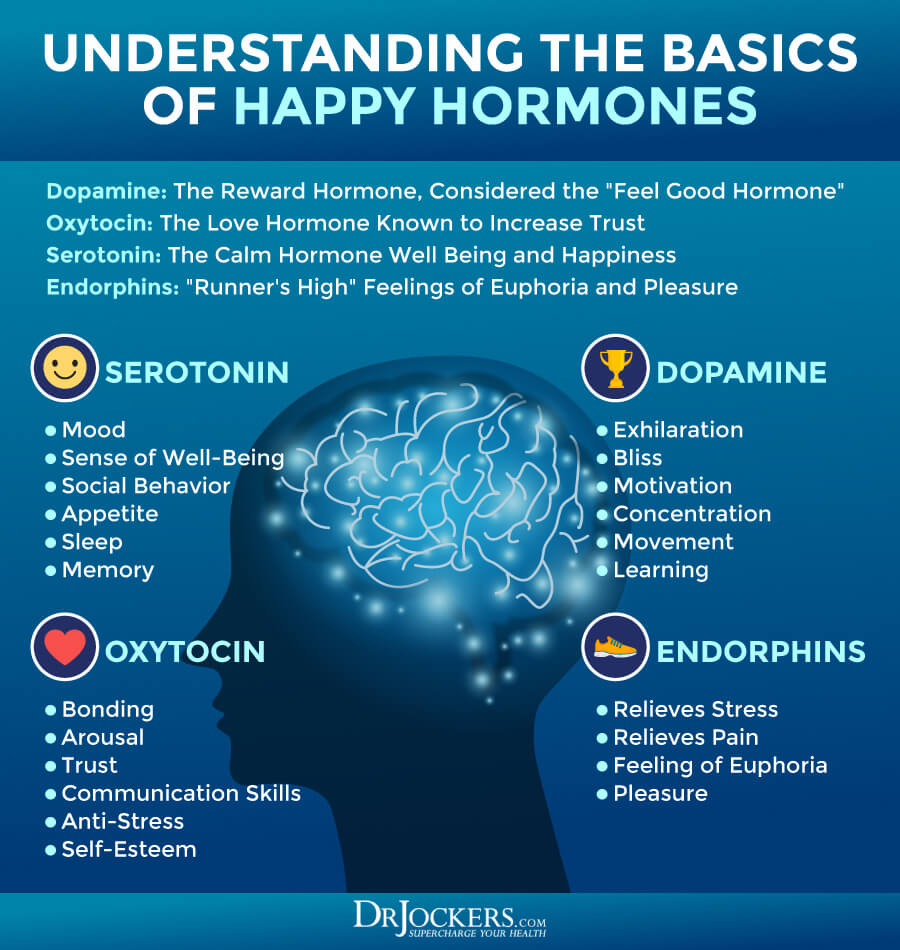
Positive Relationships
Positive social relationships and connections are critical parts of a healthy lifestyle. Positive relationships increase your oxytocin levels, which reduces stress hormones and supports healthy testosterone levels, which have a positive impact on mental and physical well-being.
According to 2022 research published in Social Psychiatry and Psychiatric Epidemiology, loneliness can increase the risk of anxiety, depression, and other mental health issues (9). According to a 2018 review published in Antioxidants & Redux Signaling, loneliness and isolation may also increase cardiovascular risks (10).
Social isolation, loneliness, mental health issues, and physical health issues can create a vicious cycle and may even lead to further withdrawal. Making a conscious effort to cultivate positive relationships is critical for your mental and physical well-being.
This includes connection with your friends, spouse or significant other, and children. Having meaningful and supportive conversations and connecting through activities that you all enjoy is important. You can also look for a supportive community, such as belonging to a church or spiritual group, volunteering, community classes, and group workouts.
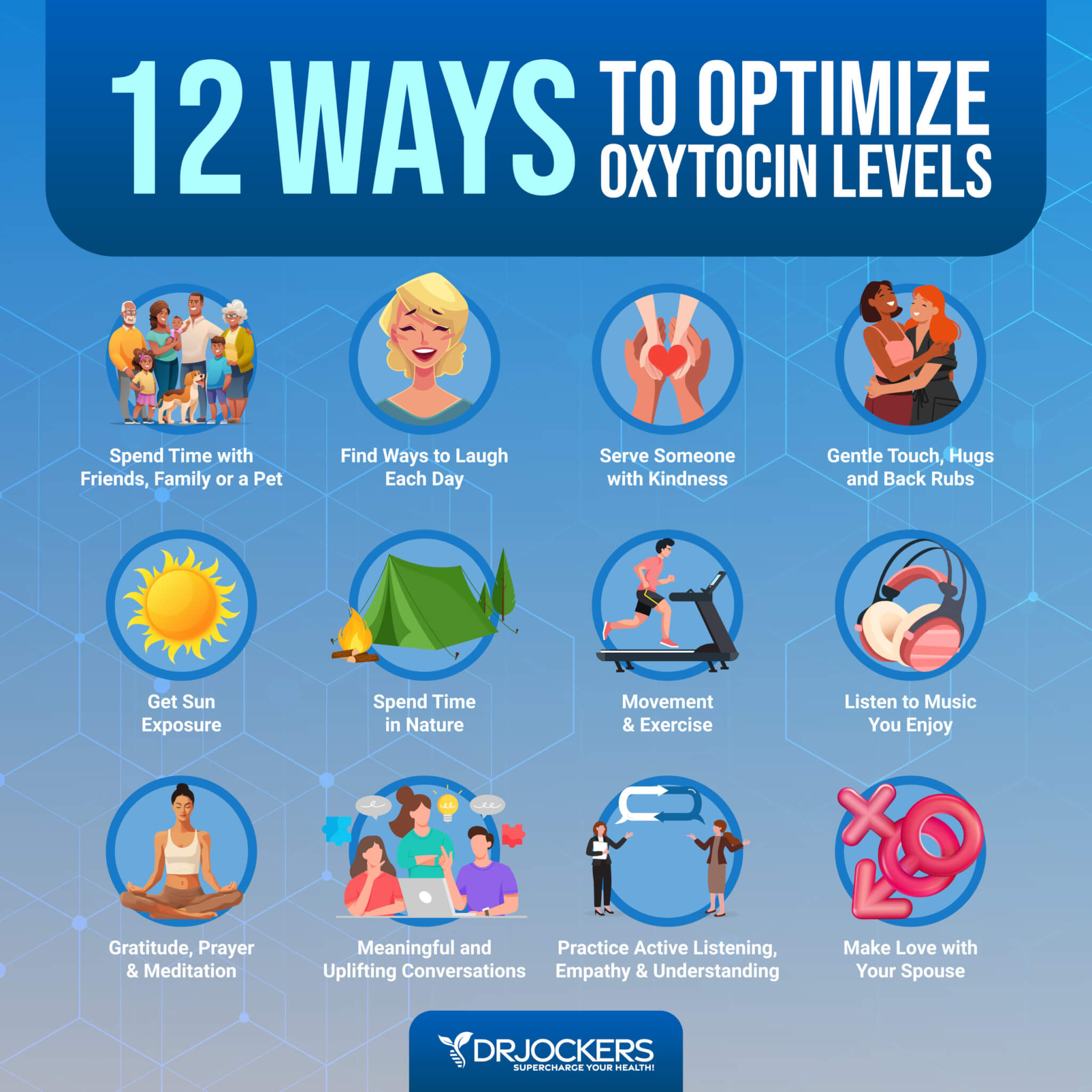
Sauna Use and Cold Plunges
Finally, I also recommend sauna use and cold plunges. Both heat and cold therapy can support cellular renewal, energy levels, and overall health. According to a 2021 paper published in Advances in Biology, moderate cold therapy increases autophagic and heat shock protein activity while high cold stress leads to apoptosis (11).
I recommend using an infrared sauna for cold therapy. You may finish your sauna session with a cold plunge into a pool, sitting in a cold bath, or taking a cold shower. You may also alternate between the sauna and cold plunge or hot and cold showers for similar results.
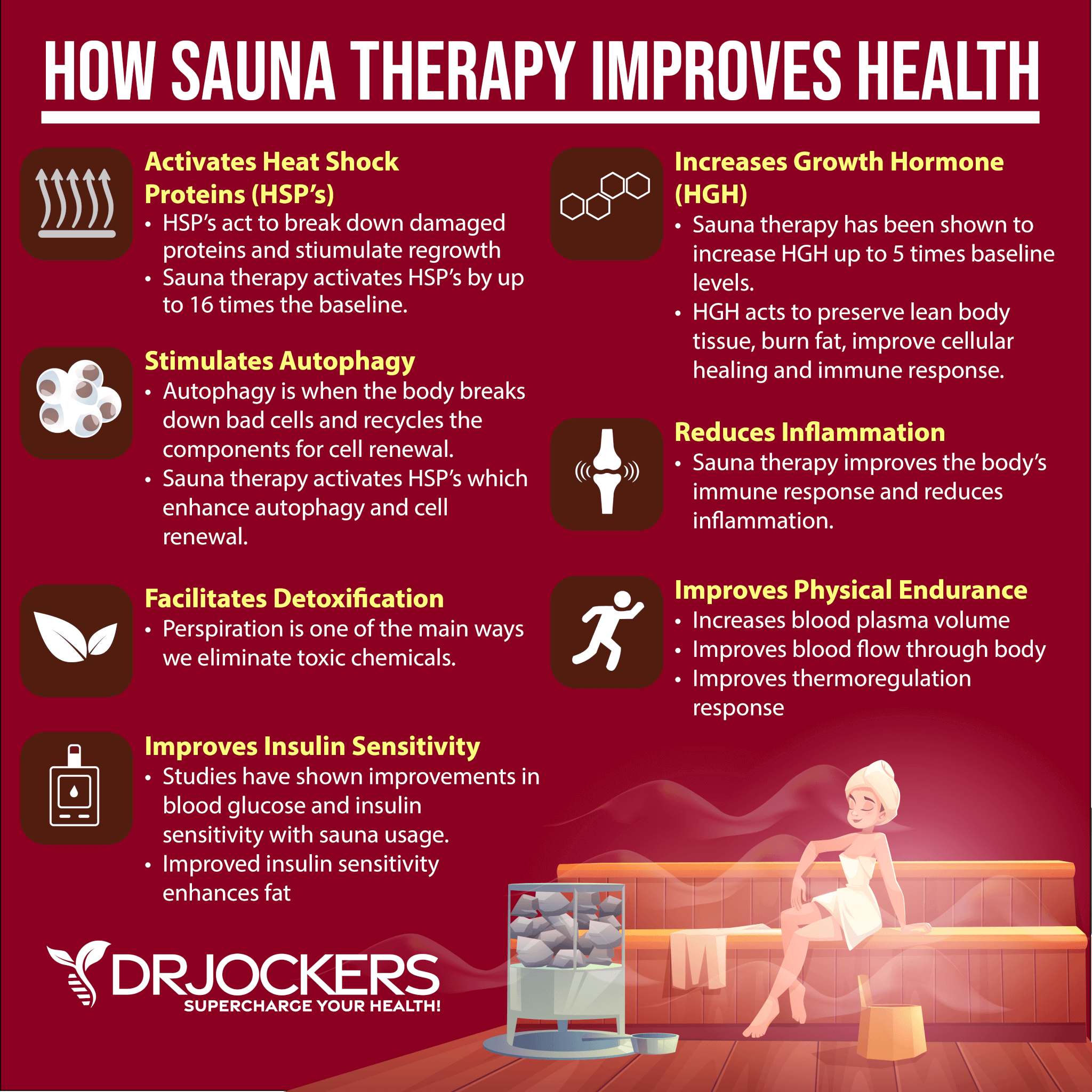
Top 7 Supplements for Men’s Health & Performance
Beyond these dietary and lifestyle strategies, you can also support your health goals with some supplements for men’s health. Lifestyle strategies are the most important factors when it comes to improving your health and accomplishing your health goals, but supplements can also support a healthy brain and body.
Here are the top 7 supplements for men’s health and performance. There are so many other supplements that can have great benefits, but these are a good place to begin.
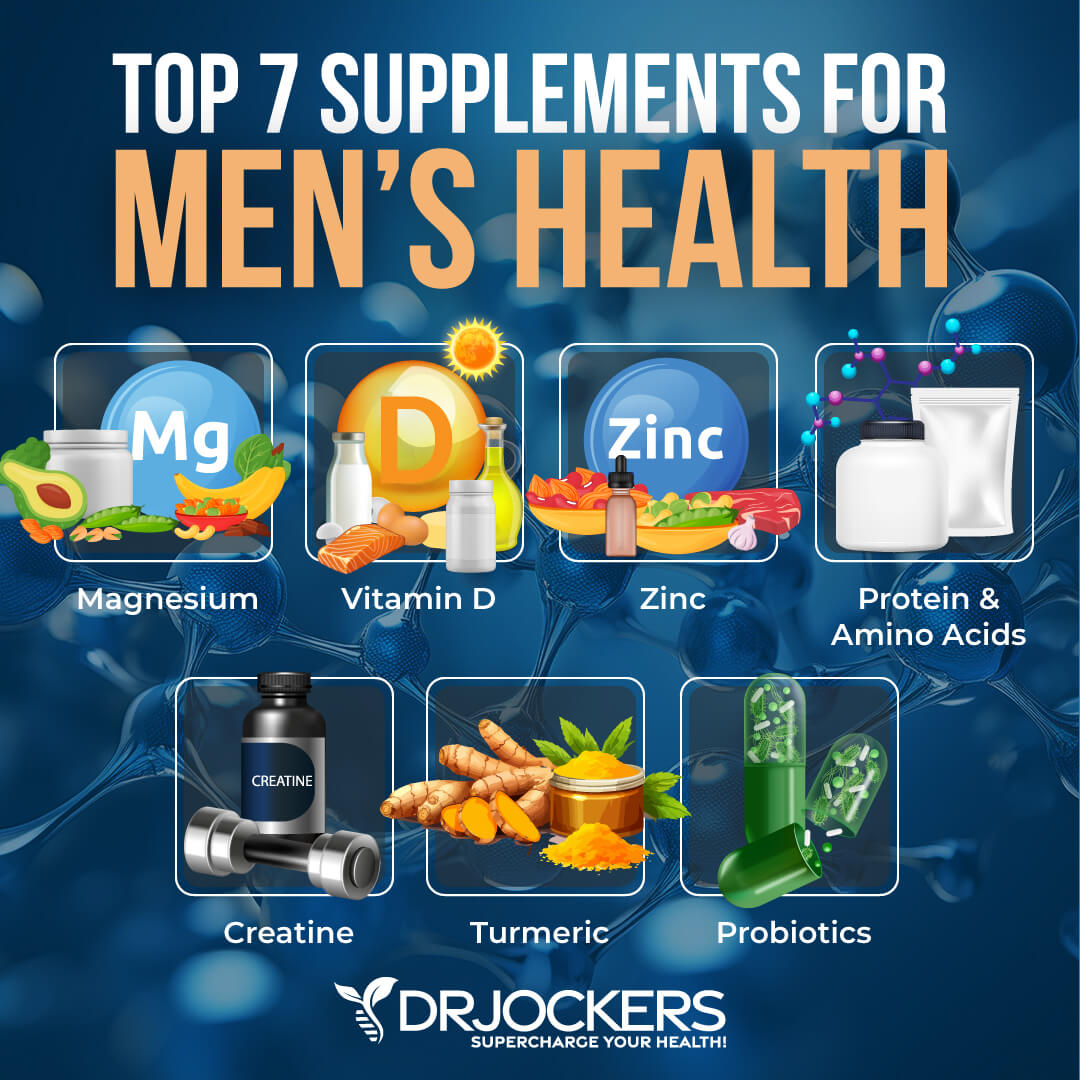
Magnesium
Magnesium is an important mineral with a vital role in a list of bodily functions. Magnesium can help support muscle function and muscle recovery by decreasing inflammation and improving energy production.
According to a 2024 review published in the Journal of Translational Medicine, magnesium supplementation may help to improve muscle soreness (12). This is an important benefit for men who want to gain strength, optimize their fitness goals, and recover faster.
According to 2011 research published in Biological Trace Element Research, magnesium may also promote optimal testosterone levels, which are necessary for muscle mass, energy, and vitality (13). It may also support your sleep quality, reduce your stress levels, help regulate your blood pressure, and lower your risk of cardiovascular disease.
Since meeting your magnesium needs through food is difficult due to our depleted soils, supplementation is appropriate for most people.
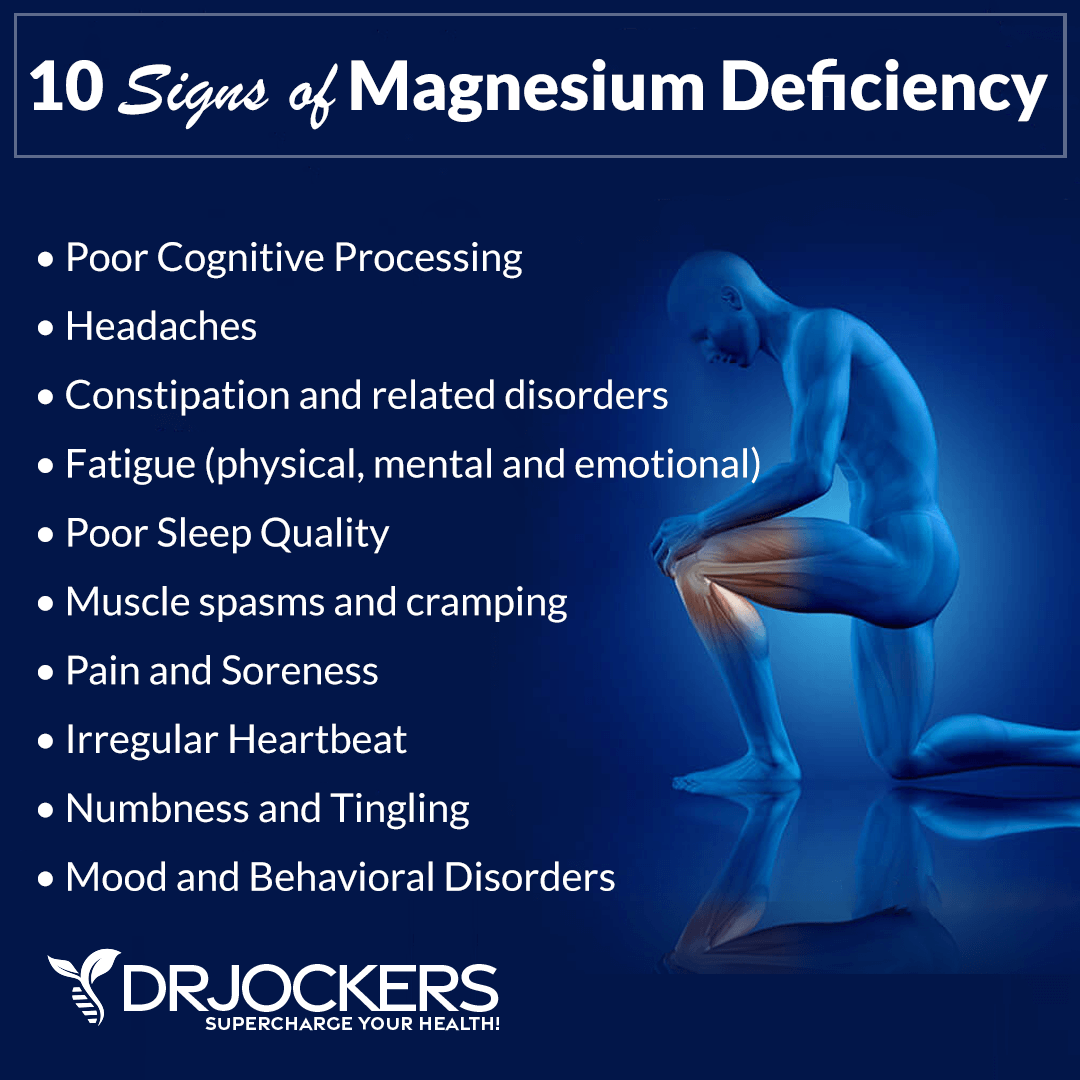
Vitamin D
As we discussed earlier in this article, vitamin D is a fat-soluble vitamin that’s critical for many areas of your health, including immune health, bone and muscle health, and brain and mental health. According to 2011 research published in Hormone and Metabolic Research, vitamin D regular vitamin D supplementation may be beneficial for testosterone levels in men (7).
Though sunshine is a great way to improve your vitamin D levels, it can be difficult if you are working indoors or living in a cooler climate with many months of clouds, rain, and snow. Some foods also contain vitamin D, but it’s not enough to meet your needs. I recommend supplementing with vitamin D for everyone, especially those with low levels.
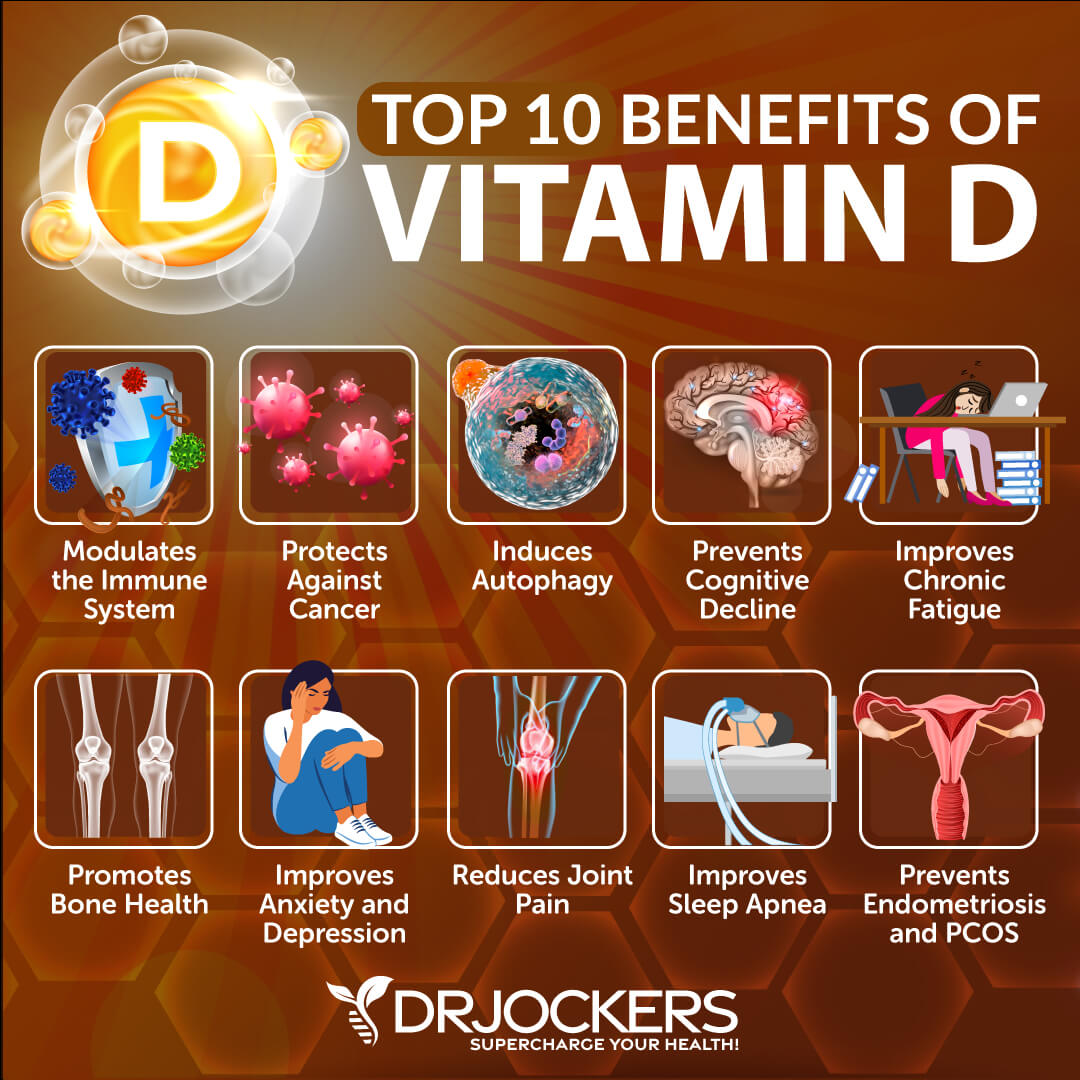
Zinc
Zinc is another vital mineral for men’s health that can support a variety of physiological functions. Though we usually talk about zinc in terms of immune health, it is also essential for hormonal health.
Zinc is necessary for testosterone production, which is needed for healthy libido, muscle development, and energy. According to a 2023 review published in the Journal of Trace Elements in Medicine and Biology: Organ Of The Society for Minerals and Trace Elements (GMS), zinc supplementation may improve testosterone levels (14).
Zinc can also support your immune function and help you reduce your risk of getting sick. It may help to reduce inflammation levels, support nutrient absorption, aid cognitive function, support skin repair, and allow wound healing.
For men, it may be important to know that it may protect prostate health by reducing inflammation. According to a 2022 review published in the European Journal of Epidemiology, zinc supplementation of more than 75 mg per day or over 15 years may reduce the risk of aggressive prostate cancer. (15).
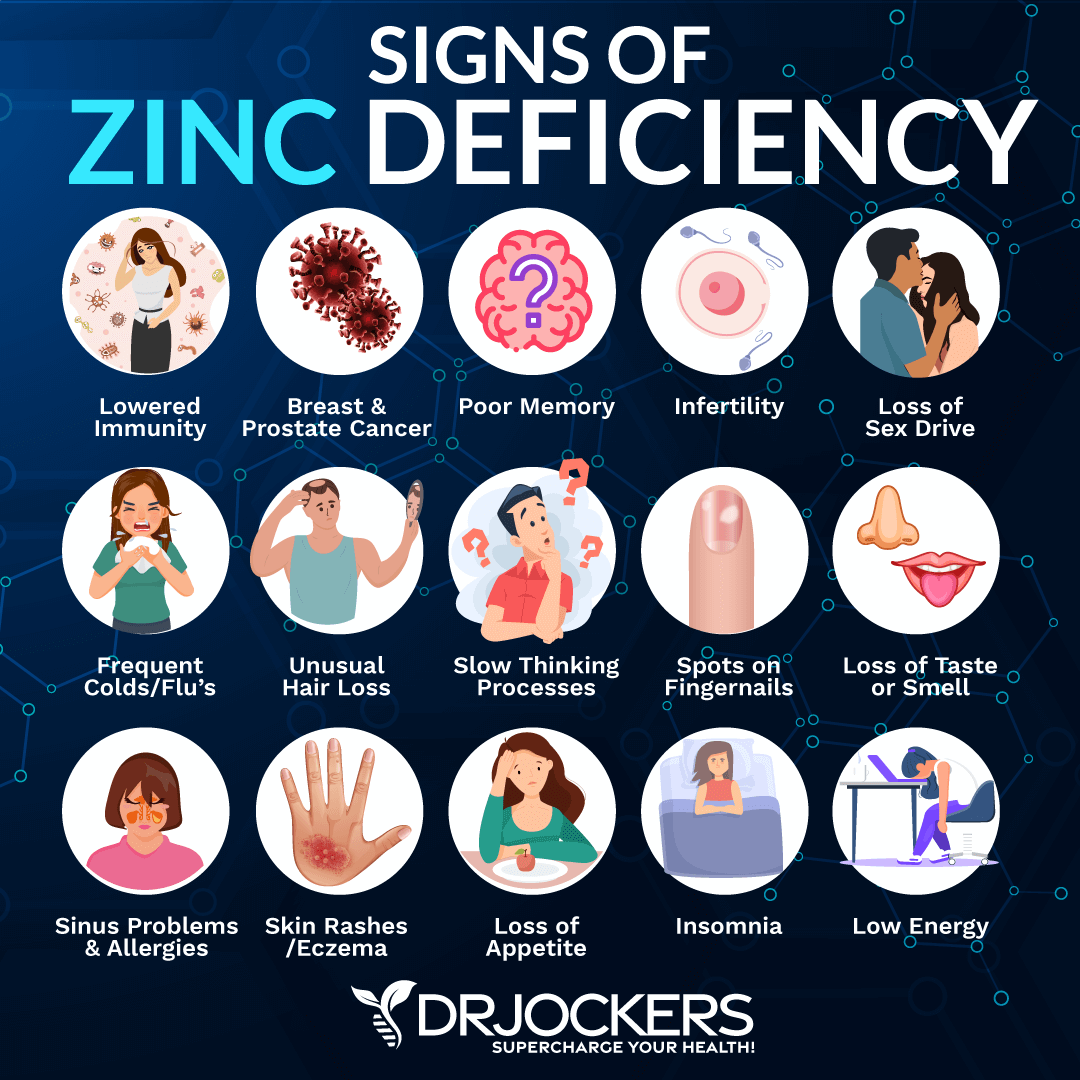
Protein & Amino Acids
Protein is a macronutrient composed of long chains of amino acids that serve as a building block for muscles, tissues, enzymes, and hormones in your body. Amino acids are organic compounds that combine to form proteins and play an important role in muscle repair, energy production, neurotransmitter synthesis, and other physiological processes.
Protein and amino acids are both key to men’s health. They support strength and physical performance.
They may help to promote satiety, support weight loss, aid healthy metabolism, and optimize body composition. According to a 2020 study published in the Journal of Obesity & Metabolic Syndrome, a high-protein diet may help with weight loss, reduce the risk of gaining it back, and lower obesity (16).
According to a 2023 review published in the European Journal of Clinical Nutrition, protein may help to reduce muscle damage and aid recovery (17). Branched-chain amino acids (BCAAs) specifically may be great for supporting muscle recovery, allowing better performance, and reducing fatigue. They are also important for hormone production and immune health.
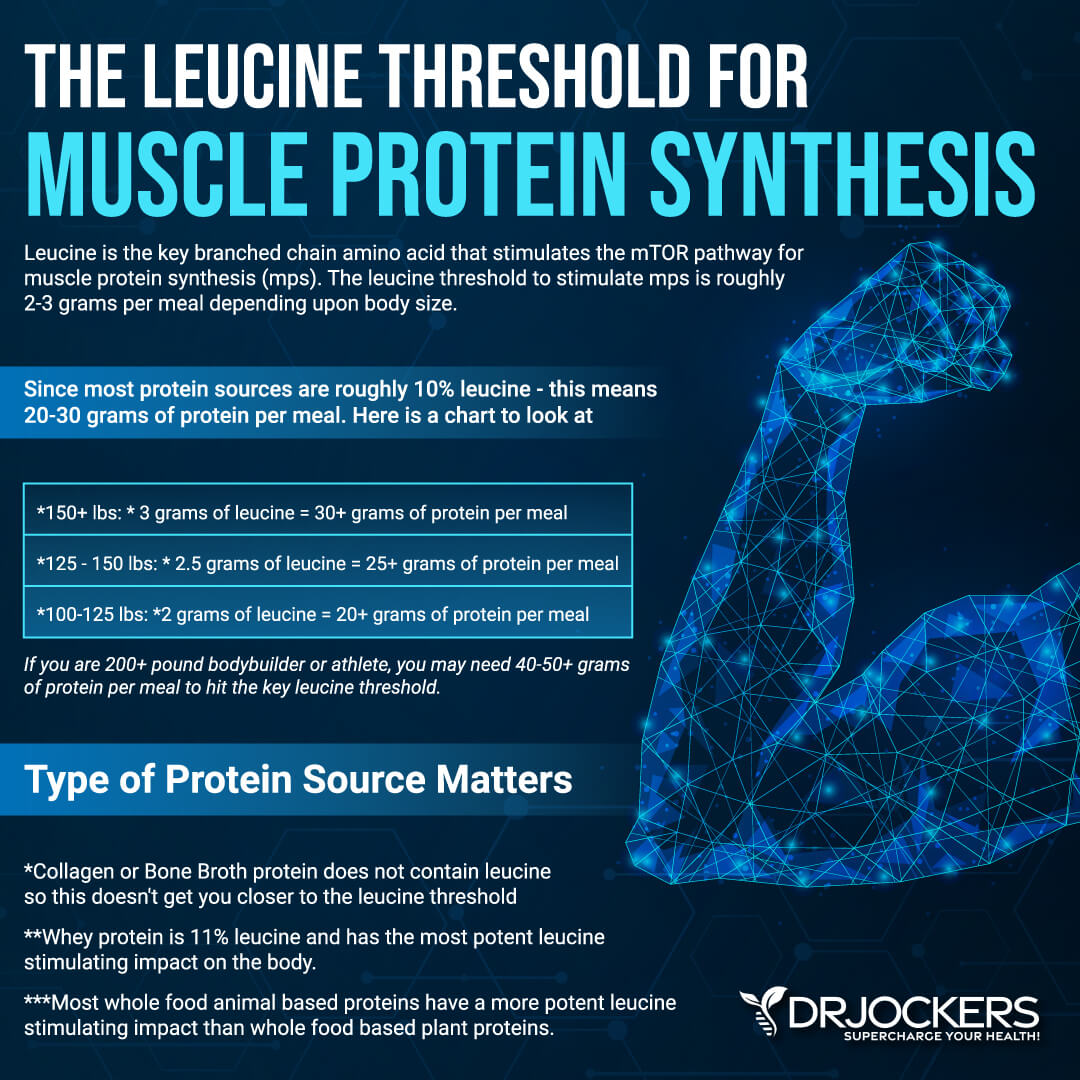
Creatine
Creatine is a naturally occurring compound that may benefit men’s health. It may help to improve physical performance and overall vitality.
It may increase energy production in muscles by replenishing adenosine triphosphate (ATP) stores and allowing more strength, power, and endurance during high-intensity exercise. As a result, creatine may support muscle growth, recovery, and improved body composition.
Creatine may help to preserve muscle mass and muscle strength, which can reduce the risk of injury and preserve the muscles as you age. According to a 2021 review published in Nutrients, creatine may reduce muscle damage, improve recovery, and support performance (18).
Creatine may also be great for cognitive function. It may help to increase memory, focus, and reduce mental fatigue.
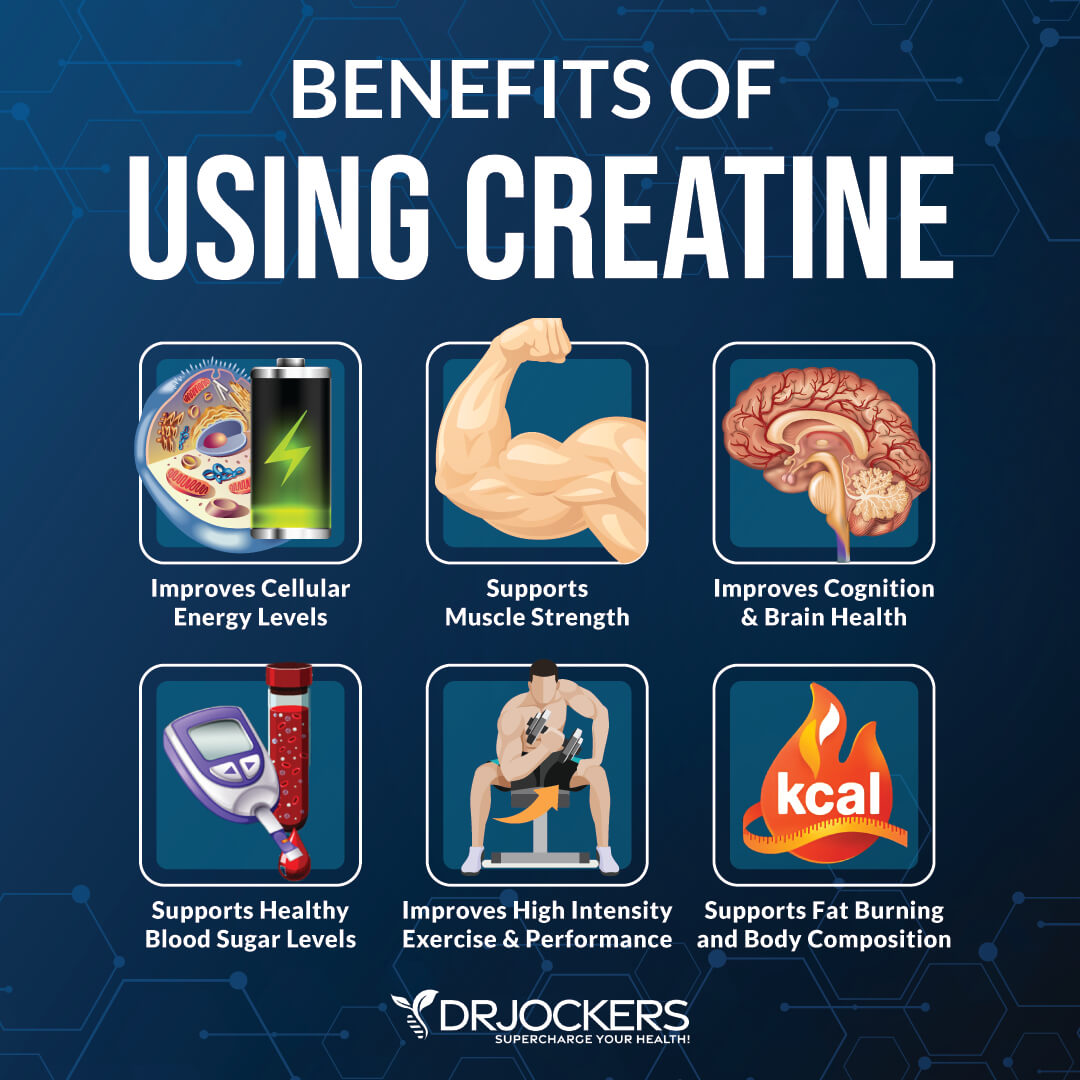
Turmeric
Turmeric is one of the most well-known spices for its anti-inflammatory qualities. It benefits from its active compound called curcumin. It is full of antioxidant and anti-inflammatory benefits.
Reducing chronic inflammation may reduce the risk of the root cause of most common health conditions in men, including joint pain, metabolic issues, heart disease, and gut health issues. According to 2021 research published in Drug Design, Development, and Therapy, turmeric may reduce inflammation in inflammatory diseases (19).
Turmeric may help reduce muscle soreness and oxidative stress and improve recovery after exercise. According to a 2023 study published in Frontiers in Nutrition, turmeric may reduce inflammatory biomarkers, decrease muscle soreness, and improve recovery in professional athletes (20). It may aid brain health, cardiovascular function, digestion, and overall well-being.

Probiotics
Your gut is home to trillions of microbes. Some are beneficial, others are not. You need a healthy balance of the two, with more beneficial bacteria than bad ones.
If they are out of balance and you have gut microbiome imbalance or gut dysbiosis, it can lead to all kinds of health issues, including chronic inflammation, gut health issues, and autoimmunity. According to a 2021 paper published in Frontiers in Immunology, probiotics may have immunomodulatory and anti-inflammatory benefits (21).
Taking probiotic supplements, which are beneficial bacteria, can support gut microbiome balance, gut health, immune function, and overall well-being. Since your gut and brain are connected, it can help to support cognition, focus, and memory, reduce stress, and aid mental health.
According to a 2024 review published in Microorganisms, probiotics may help reduce depression and anxiety (22). It may also support nutrient absorption, muscle growth, healthy energy levels, metabolic health, and heart health.
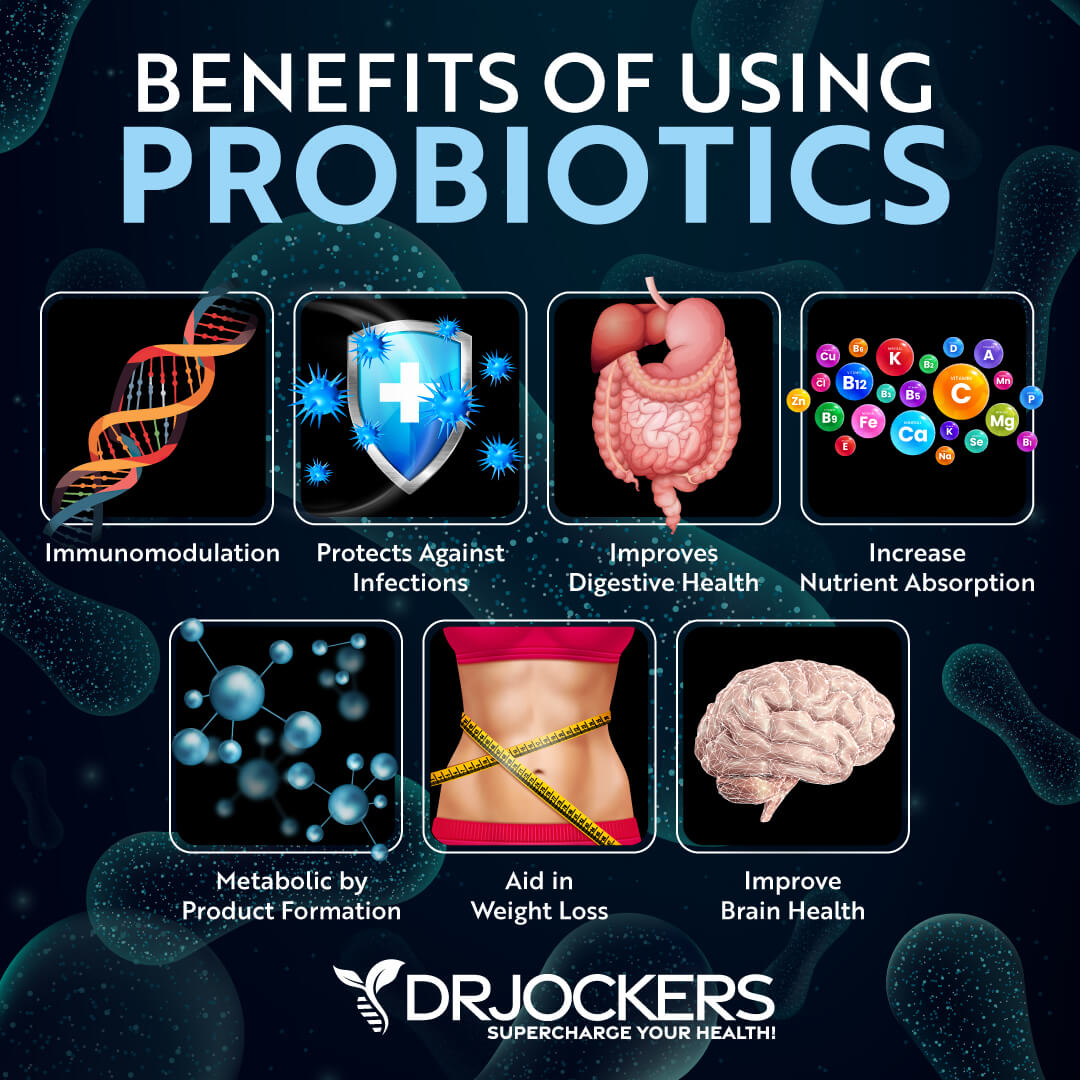
My Men’s Health Protocol
Now that you understand the top nutrients for men’s health, you must be wondering what the best supplements you could take to protect your health and reduce your risk of men’s health concerns.
Here is my men’s health protocol and specific supplements I recommend for men’s health concerns.
Complete Multi-Vitamin
The first supplement I recommend for women’s health concerns is a multivitamin to cover all your basic nutritional needs and prevent deficiencies. The specific multivitamin I recommend for women’s health concerns is the Complete Multi-vitamin.
This supplement is a full-spectrum multivitamin with Albion-chelated minerals for maximum absorption and bioavailability. It is designed with select minerals in chelated form.
Chelation is the bonding of minerals to amino acids, which results in molecules that are more bioavailable and better absorbed and assimilated by the body. The chelated iron in this Complete Multi-Vitamin, containing copper,r will not result in constipation or GI upset as may be experienced from other forms of supplemental iron.
Some of the key nutrients in this multivitamin include folate, other B vitamins, vitamins K1 and K2, vitamin E, vitamin C, hesperidin, rutin, and quercetin. Take 4 capsules per day (2 with each meal) or as directed by your healthcare practitioner.
This product is recommended for those with adequate intake and absorption of iron but who may benefit from additional copper. If you are taking a blood thinner medication, consult a healthcare practitioner before using it.
ImmunoCharge
The second product I recommend for men to support their immune health and reduce inflammation is ImmunoCharge. This supplement is designed to provide you with key nutrients and compounds to support your immune system.
The ingredients in this supplement support the body’s natural immune mechanism to help maintain good health. Rather than taking multiple different supplements to get these key nutrients, you can get what you need in ImmunoCharge.
The ingredients in this supplement include quercetin, zinc, vitamin D, N-Acetyl Cysteine (NAC), vitamin C, selenium, resveratrol, magnesium, vitamin A, and vitamin K2. These ingredients support the body’s natural immune mechanism to help maintain good health.
Rather than taking multiple different supplements to get these key nutrients, you can get the clinical dosages within 4 capsules daily of ImmunoCharge. Take 2 capsules, 2 times daily with meals for optimal absorption, or as directed by your healthcare practitioner. For an advanced dose, I recommend 3 – 4 capsules twice a day.
Whey Strong
To improve your amino acid and protein levels and to support your muscle health, I recommend Paleovalley’s Grass-Fed why protein and Amino Strong.
Paleovalley’s Grass-fed whey protein is a protein powder. This is a great-tasting, high protein, low carbohydrate, functional food powder. It is made with an exceptional quality whey protein made from grass-fed cows and is loaded with immune supporting colostrum which is called “liquid gold” as it has powerful immunoglobulins that support gut health and the immune system.
The milking cows are never fed grain and are not subjected to hormone or antibiotic treatments, unlike other instantized whey formulations. This whey protein is non-denatured, which preserves the natural enzymes, and it is gluten-free, grain-free, soy-free, and non-GMO.
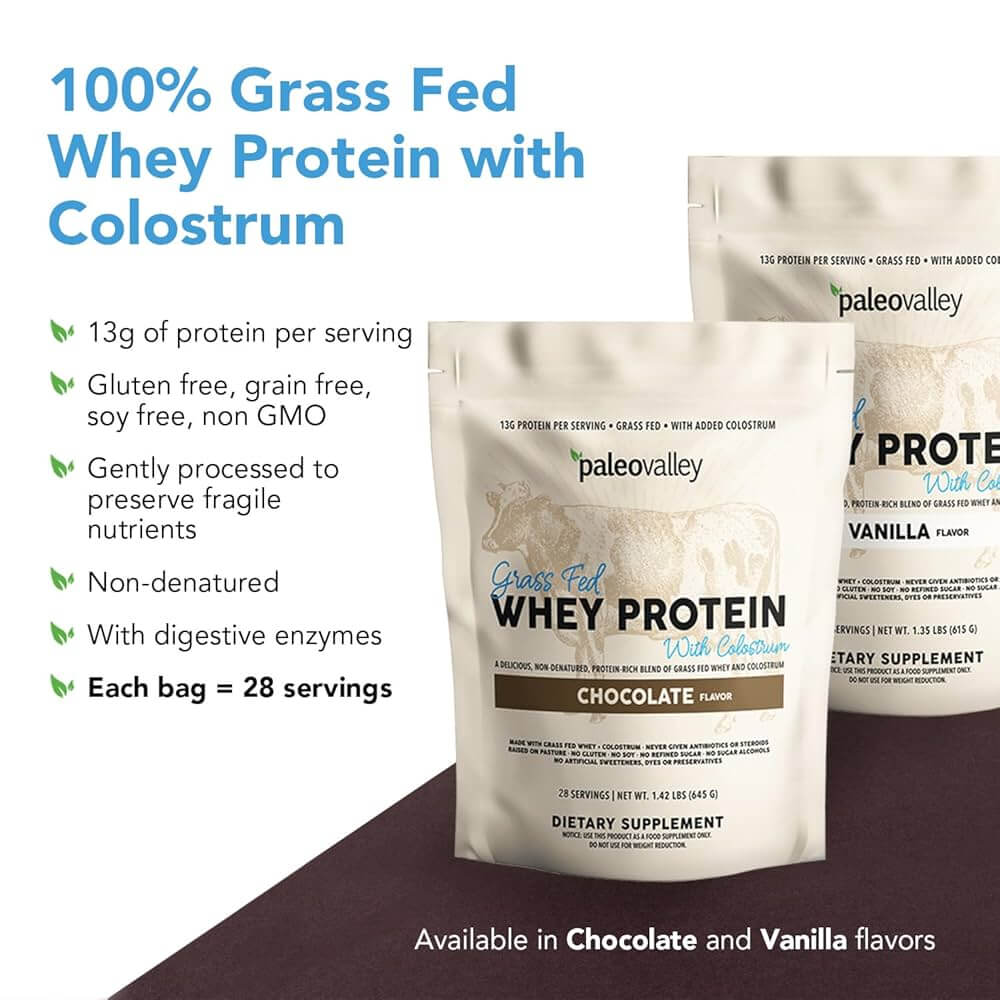
Amino Strong:
Amino Strong represents a breakthrough in the use of amino acids for muscle protein synthesis. Over 20 human trials have been conducted to arrive at this specific, patent-pending combination of amino acids in the most effective, anabolic ratios.
Whether you want to support muscle strength and function or prevent muscle loss associated with inactivity or aging, Amino Strong provides the right amino acids in the right ratios to help you meet your goals and stay healthy. Try 1 scoop or 2 scoops in water or a protein shake.
Creatine Strong
If you are interested in the benefits of creatine, I recommend using Creatine Strong. I recommend this supplement for individuals who are looking to enhance muscle performance or support cellular energy and cognitive function!
This creatine supplement has 5 g of micronized creatine per scoop in a convenient powder that rapidly dissolves in liquid. It is formulated with micronized technology, allowing for improved absorption and digestibility and enhanced bioavailability to targeted muscle tissue.
It provides a natural taste through an unflavored and unsweetened powder. It has absolutely no artificial flavors, sweeteners, or dyes. It may help promote high‑intensity exercise capacity and lean body mass during training.
Creatine supplementation with Creatine Strong may provide nutritional intervention to support healthy aging by reducing muscle loss in the aging population. Creatine supplementation may support brain health and cognitive processing by increasing brain creatine and ATP. Mix 5 grams in 8 to 10 ounces of water per day.
Male Performance
Finally, I recommend Male Performance. This blend combines organs, glands, and superfoods designed specifically for men’s performance and vitality. That means bovine and ovine liver, heart, adrenals, prostate, orchic (testicular), pituitary, and more.
This supplement also has Bacillus Coagulans, a powerful spore-forming probiotic that helps balance the gut microbiome and improve overall digestive and immune health. You’ll also get organic cordyceps and fenugreek seeds – both time-tested superfoods for men’s health – 10mg zinc, and 100 mcg selenium.
Together, this formula delivers powerful support to help men feel energized, youthful, and ready for their best years yet. This supplement helps provide safe support for normal testosterone production, erectile function, and desire.
Final Thoughts
Men have some unique health needs and goals that are different from women and even from children of either gender. If you are a man and want to improve your health and performance, I recommend that you follow the strategies and try the supplement I recommend in this article. Share this article with the men in your life so they can improve their health and performance too.
If you want to work with a functional health coach, I recommend this article with tips on how to find a great coach. On our website, we offer long-distance functional health coaching programs. For further support with your health goals, just reach out and our fantastic coaches are here to support your journey.
Inflammation Crushing Ebundle
The Inflammation Crushing Ebundle is designed to help you improve your brain, liver, immune system and discover the healing strategies, foods and recipes to burn fat, reduce inflammation and Thrive in Life!
As a doctor of natural medicine, I have spent the past 20 years studying the best healing strategies and worked with hundreds of coaching clients, helping them overcome chronic health conditions and optimize their overall health.
In our Inflammation Crushing Ebundle, I have put together my very best strategies to reduce inflammation and optimize your healing potential. Take a look at what you will get inside these valuable guides below!
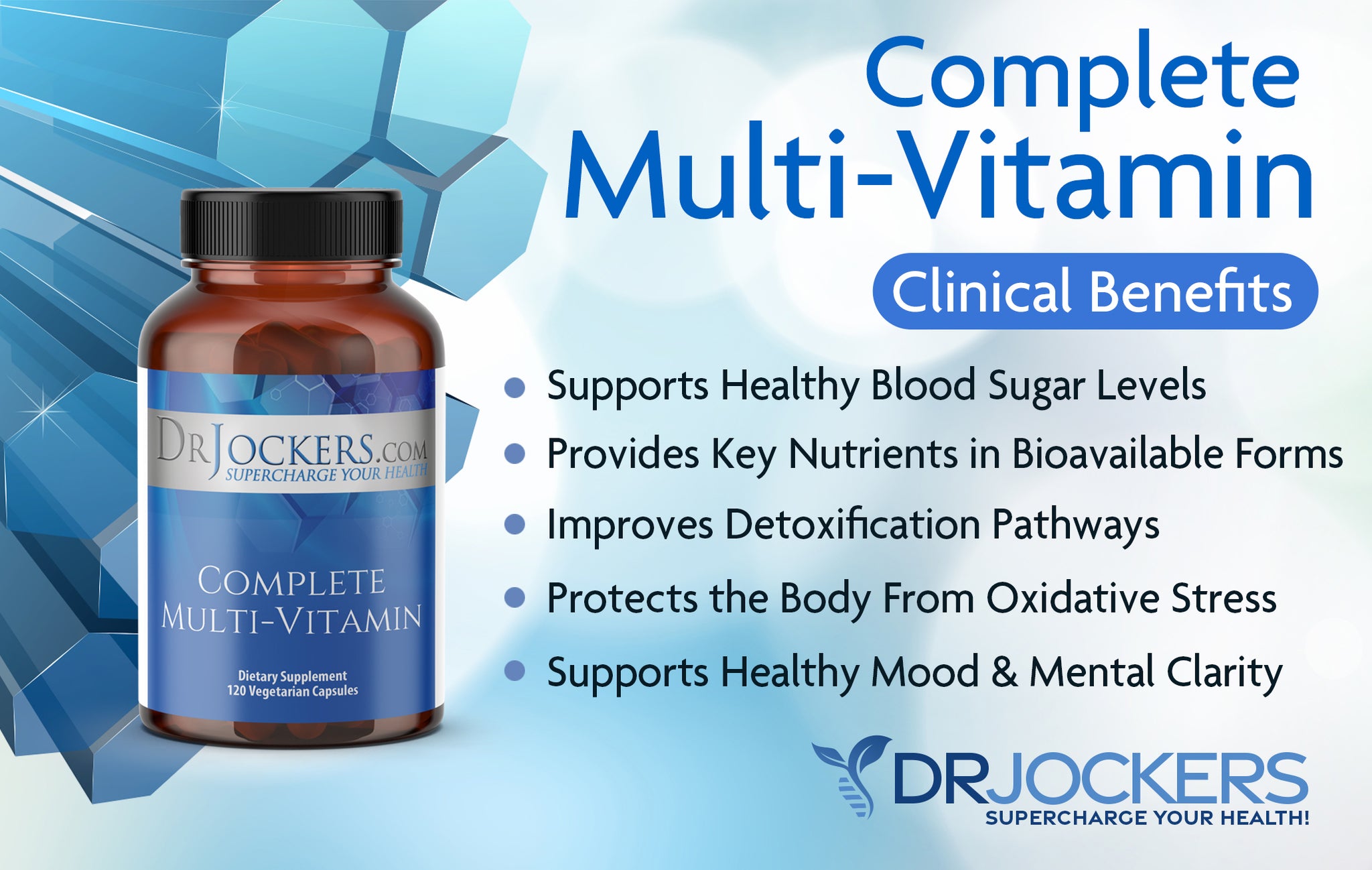
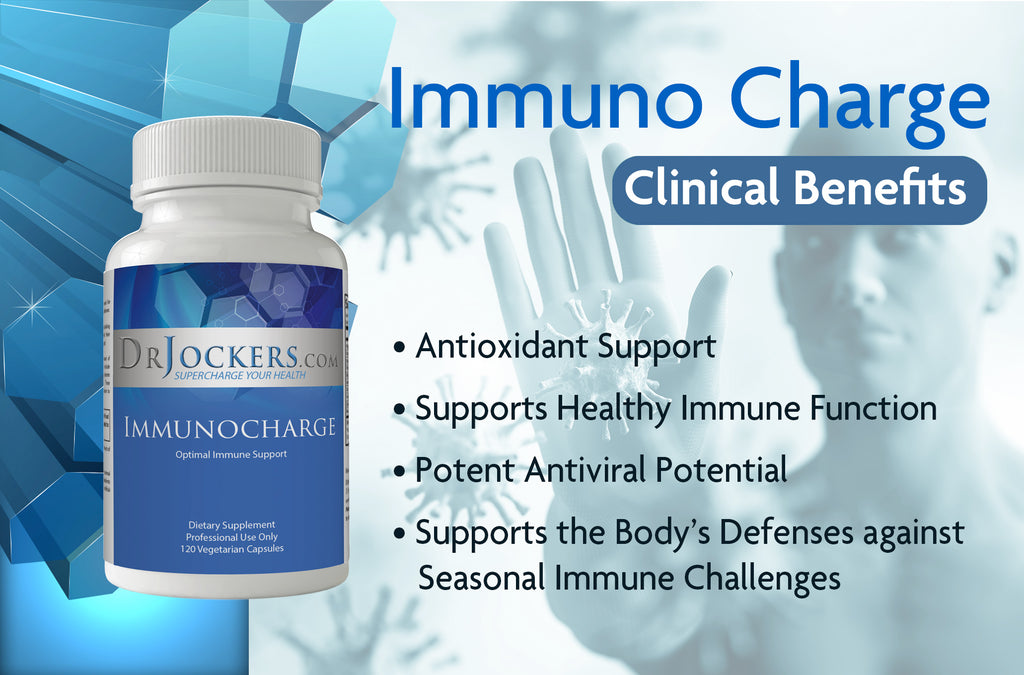

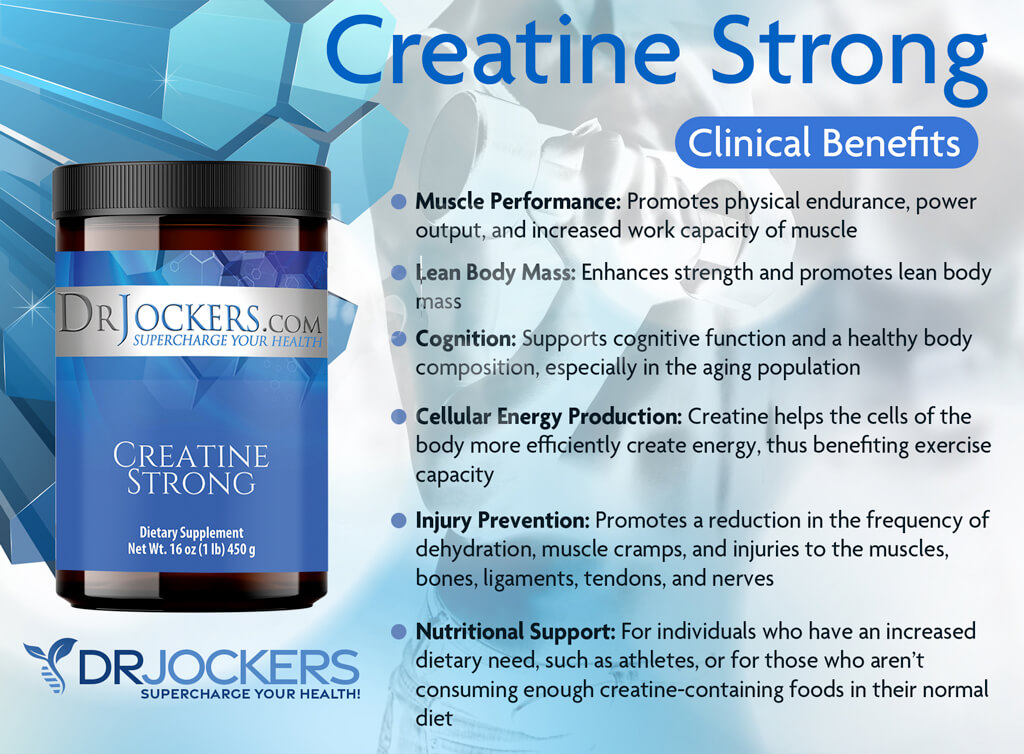


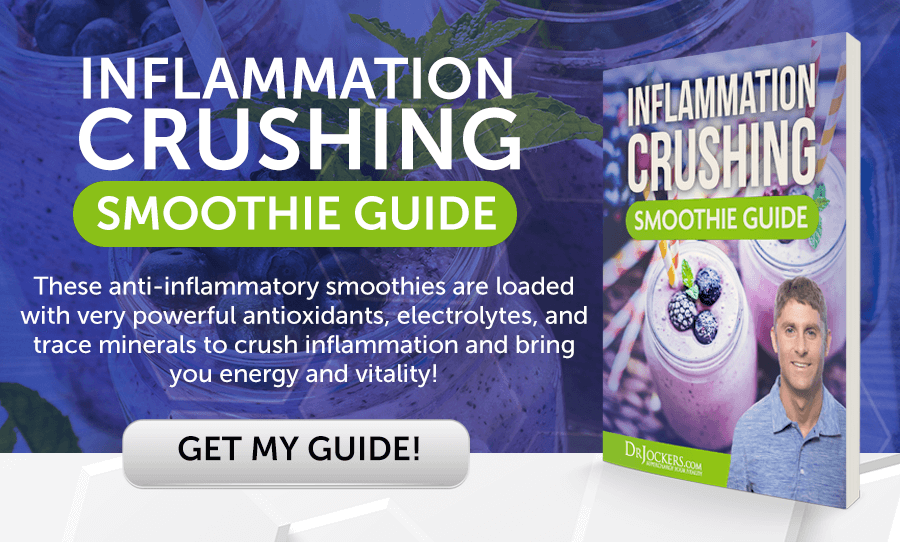


Boy, this all sounds great but how much will all this cost per month?